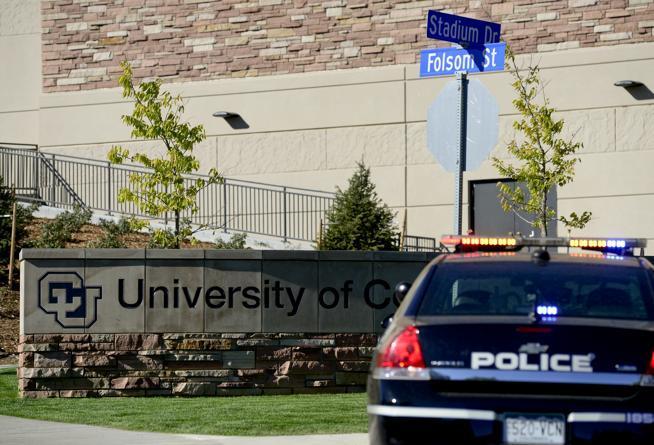The University of Colorado Boulder Police Department is shifting away from giving criminal citations for many low-level and first-time offenses, replacing them with administrative citations that refer students to the school’s conduct process as part of an effort to prevent students from entering the criminal justice system.
The process to change CUPD’s citation policy began a year ago, said Cmdr. Mark Heyart, and uses a system that’s already in place.
Now, students who get low-level citations — like a minor in possession of drugs or alcohol, fake identification or unlawful conduct on public property — won’t receive a court summons. Instead, they will get a lesser fine and are referred to the Office of Student Conduct and Conflict Resolution.
“We recognized over the years that our student conduct processes are very effective, and we’re taking the opportunity to expand that, fine-tune it and provide at the same time visibility for our students who make a lower-level mistake,” Heyart said.
The administrative citations won’t be used for students who are repeat offenders or accused of violent crimes, Heyart said.
But, he said, it is hoped the new program will create a culture across campus that promotes students taking responsibility for their actions.
Once students are engaged in the conduct process, they can take a variety of routes depending on the severity of the offense, said Assistant Dean of Students Devin Cramer.
Student Affairs staff conduct evaluations to determine how risky a student’s behavior is — for example, drinking in a residence hall compared to being transported to the hospital for intoxication — and set up a plan from there, which can involve one or more sessions of one-on-one and group interactions.
“My focus is always how can we educate students about alcohol and marijuana — and that’s going to be most of these kids,” Cramer said. “How can we educate them early on so they don’t put themselves in situations that could impact their long-term health?”
There’s still a punitive side to the equation, with students paying fines along with the administrative citations, which go toward restorative justice and other safety programs on campus. The fines are approximately half of what students would pay for a criminal citation.
Overall, Cramer said, working with students this way helps them learn, grow and get feedback about their behavior.
“We owe it to our students to help them holistically grow,” Cramer said. “People make mistakes, and this is our opportunity to help them learn from their mistakes and show integrity through those mistakes.”
Student government leaders Kavya Kannan, Sophia Khan and Taylor Weinsz said they support the program as a commitment to educating students.
“We’re in a very formative time in our lives when we’re in a school environment, and if we can help students engage in these actions that are more educational and restorative, rather than just saying we’re going to punish harshly, we can educate them as to how to make good choices,” Kannan said.
It’s also a step in the right direction of rethinking how law enforcement interacts with communities of color, the student leaders said — communities that are disproportionately impacted by policing.
“There are not enough people even within CU student government who are people of color, and it’s really important when making decisions around policing to include people of color, that their voices are valued just as much as ours are,” Kannan said.
“This is a great step and really progressive on CU Boulder’s part, and … I am really excited to see what this is going to do for our students and how it’s going to impact the choices they make in the future,” she continued.
The administrative citations program began in May, and officers have issued approximately 15 citations so far, Heyart said.
“From what I’ve heard from patrol officers it’s been a positive response. It’s understood that it’s a different mechanism that takes place for that, and that’s appreciated,” Heyart said.
This content was originally published here.

